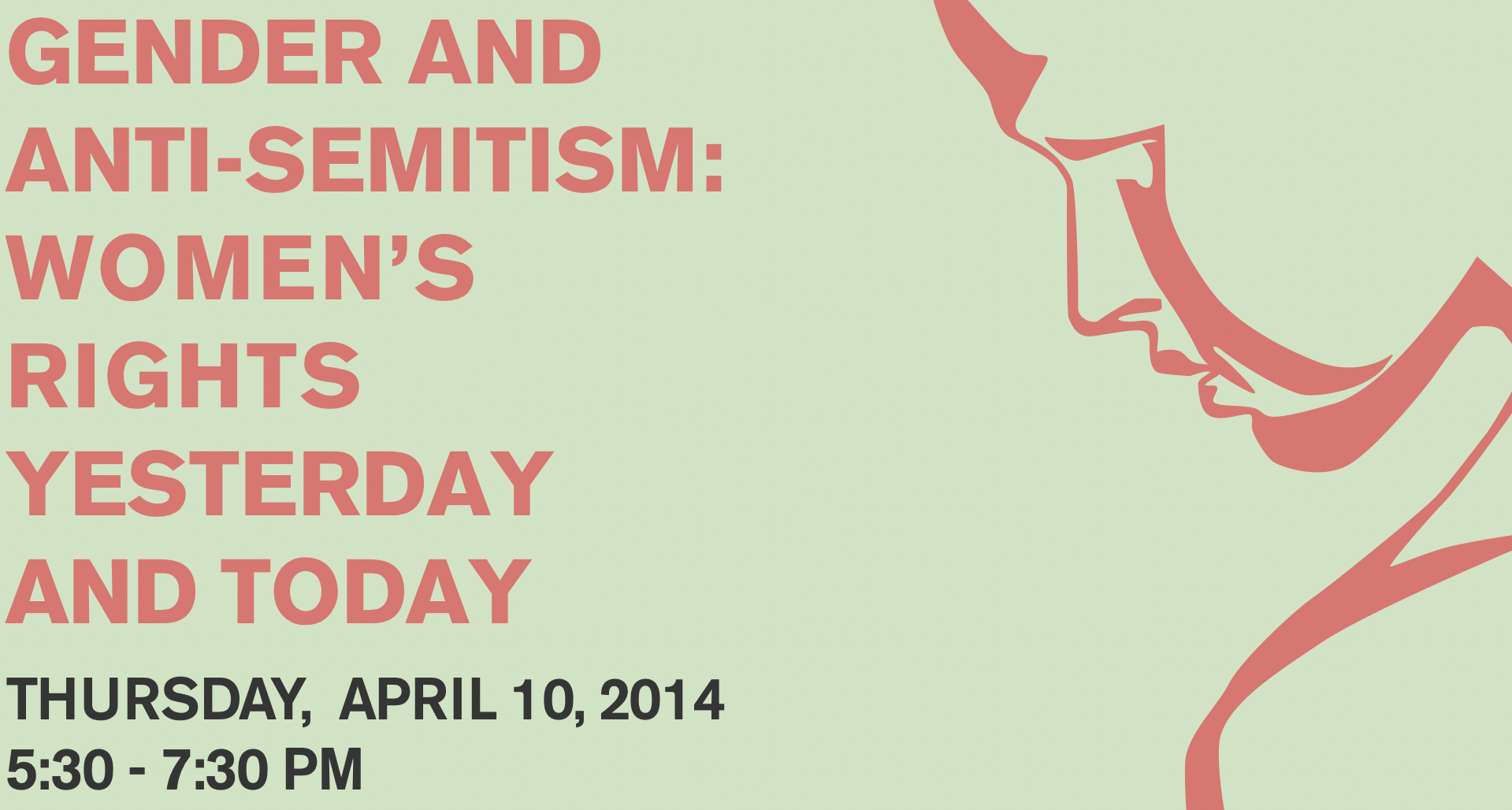Welcoming remarks:
Barbara Faedda
Italian Academy for Advanced Studies, Columbia University
Speakers
Victoria de Grazia
Columbia University
Fascist Men and Jewish Women
Yasmine Ergas
Columbia University
Women's Rights and Women's Freedoms: A View from the Present
Moderator
Elissa Bemporad
Queens College of the City University of New York
Female Voices of the Holocaust
Europe and the United Nations commemorate the victims of the Shoah each winter on the date of Auschwitz's liberation in 1945; the Italian Academy presents an annual academic event exploring issues of discrimination and crimes against humanity. In previous years, the Academy broadened its focus to explore groups that were targeted in the racism and xenophobia of the Nazi and Fascist regimes, and that suffered and died along with the millions of Jews. This year, our Holocaust Remembrance will focus on the role of women and gender in Italy and Europe—during the Nazi-Fascist era, and today.
(Postponed from original date because of snowstorm. –April 2014)
Bios
Victoria de Grazia, Moore Collegiate Professor of History at Columbia, was educated at Smith College, University of Florence, and Columbia University where she received her Ph.D. in history with distinction in 1976. Before joining the Columbia faculty in 1994, she taught at Rutgers University. Her research interests lie in contemporary history, with longstanding commitments to studying Western Europe and Italy from a gendered perspective and to developing a global perspective on commercial revolutions. Her publications include: Irresistible Empire: America's Advance through Twentieth Century Europe (2005); The Sex of Things: Gender and Consumption in Historical Perspective (ed., 1996); How Fascism Ruled Women: Italy, 1922-1945 (1992); The Culture of Consent: Mass Organization of Leisure in Fascist Italy (1981). She is currently writing a book about intimacy and power in Fascist Italy.
Yasmine Ergas is Director of the Specialization on Gender and Public Policy, Lecturer in International and Public Affairs, and Associate Director of the Institute for the Study of Human Rights. A lawyer and sociologist, she has worked on issues regarding gender and women’s rights as a policy analyst and advisor, scholar and advocate. She has served as a consultant to international and domestic policy organizations, including the OECD, UNESCO, and CENSIS, a major applied social research institute in Italy. Her work has been published widely, including in Italian, French, German, Japanese, Spanish and Portuguese.
Elissa Bemporad is an assistant professor of history and the Jerry and William Ungar professor in Eastern European Jewish history and the Holocaust. She received her undergraduate degree in Slavic Studies from Bologna University, an MA in Modern Jewish Studies from the Graduate School of the Jewish Theological Seminary of America, and earned her PhD from the Department of History at Stanford University. Her first book was "Becoming Soviet Jews: The Bolshevik Experiment in Minsk, 1917-1939"; her new book project, tentatively entitled "The Blood Libel in Modern Eastern Europe: A Social History," explores the ritual murder accusation within the context of the social, economic and gender relations between the Jews and their neighbors in the Soviet Union and Poland in the twentieth century.
Remembrance Initiatives at the Academy since 2008
